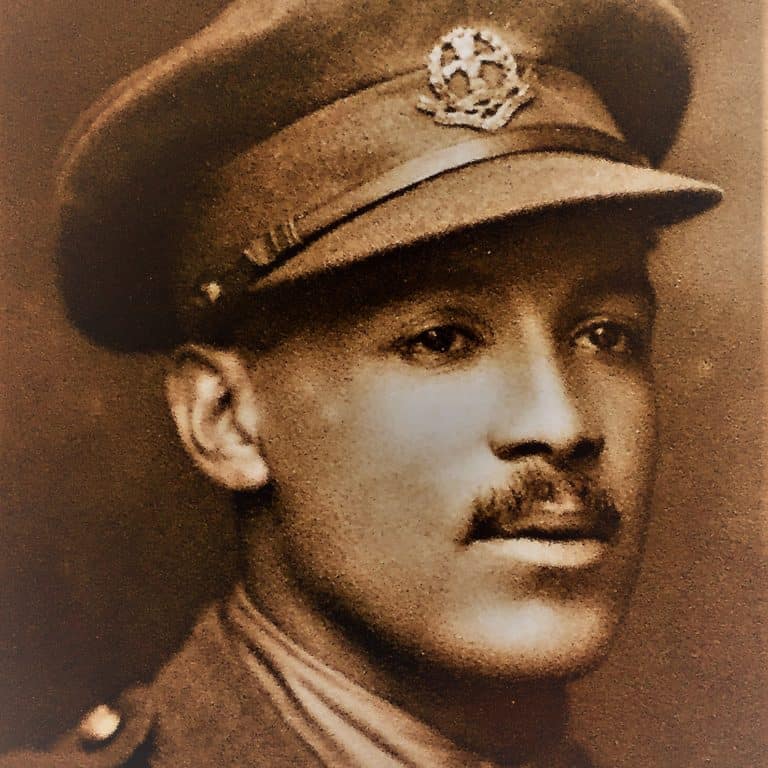GFC School Students learn about Walter Tull.
Walter Tull is a name that means little to most football fans.
The trailblazing footballer and war hero who died on the battlefield aged just 29 was the focus of a fascinating lesson as part of Black History Month at The GFC School and it made a big impression on our students.
Tull was one of the game’s first black professional players and he became the first serving black soldier in the British Army to reach officer status and lead white troops, at a time when black men were not allowed to reach higher ranks according to the army's own regulations.
Born in Folkestone, Tull’s early life was marked by heartbreak when his mother, Alice, sadly died of breast cancer when he was only seven. His father, Daniel, who had moved to Britain from Barbados passed away of heart disease just two years later.
Walter was taken into an orphanage with his brother Edward (who went on to become one of the first mixed-heritage people to register as a dentist), but after Edward was adopted, Walter stayed at the Dr. Stephen’s Children Home in Bethnal Green where his love of sport was encouraged.
Walter showed a great deal of promise and went on to play for amateur side Clapton FC in East London.
He was spotted by Tottenham Hotspur and became one of the first black players in the professional game and he showed much promise in front of the huge crowds that watched. The gifted footballer, however, was subjected to appalling racial abuse which seriously affected his career.
After stalling at Spurs, he made a move to Northampton in 1911 where he played over 100 games. The outbreak of WWI, however, saw him become an even bigger hero away from the game.
Tull enlisted with Middlesex Regiment, part of a 'Footballers' Battalion' that drew professional players from an array of clubs. He rose to the rank of lance sergeant, and fought in the Battle of the Somme in 1916. After suffering from ‘shell shock’ he returned to action as an officer and served on the Italian front line where he was praised for his ‘gallantry and coolness’.
Tull led 26 soldiers on a night raid against an enemy position. He and his men crossed the River Piave into enemy terrain before returning back unharmed, despite coming under heavy fire.
While an Officer Cadet in Scotland, Tull agreed to join Rangers once the war had ended, sadly he never got to play for them. Tull was killed in action on the 25th March 1918, shortly before the end of the war.
It was reported that fellow soldiers including Private Tom Billingham, a former goalkeeper for Leicester Fosse, tried to drag his body back to British-held territory. Their efforts, under enemy fire, were in vain.
His body, left in no man’s land on the French battlefield, was never recovered.
GFC students, who have heroes in Messi, Ronaldo and Kane, enjoyed adding a local one to the list. His name was Walter Tull.
